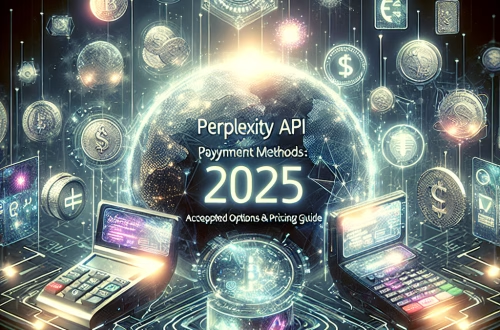Eleven Labs for Character Voices in Games
Summary:
Eleven Labs is a groundbreaking AI tool specializing in hyper-realistic text-to-speech (TTS) and voice cloning for game development. It allows creators to generate lifelike character voices without hiring voice actors, using advanced neural networks. For indie developers, small studios, or AAA teams, it dramatically reduces costs, accelerates production timelines, and enables dynamic dialogue systems. The platform offers multilingual support, emotional tone adjustments, and customizable speech styles. As games demand richer narratives, Eleven Labs provides a scalable solution for immersive storytelling.
What This Means for You:
- Democratized Voice Acting: You no longer need large budgets for professional voice talent. With Eleven Labs, indie developers can create studio-quality voices for NPCs, protagonists, or lore entries. Start by experimenting with their free tier to prototype dialogue.
- Dynamic Contextual Speech: Adjust tone, pacing, and emotion in real-time based on in-game events. For action sequences, generate急促, breathy delivery with their “contextual clustering” feature. Always test outputs in-engine to ensure alignment with gameplay.
- Ethical & Legal Safeguards: Avoid copyright issues by using Eleven Labs’ original voice library or securing rights for cloned voices. Document consent if replicating real actors, and review their Fair Use Policy pre-launch.
- Future Outlook or Warning: While AI voices are improving, over-reliance risks generic performances. Expect advancements in “emotional granularity” by 2025, but monitor industry guidelines like SAG-AFTRA’s AI voice agreements to avoid legal pitfalls.
Eleven Labs for Character Voices in Games
Why Eleven Labs Stands Out in Gaming
Eleven Labs leverages proprietary deep learning architectures, such as transformer-based models with prosody control, to produce voices indistinguishable from humans. Unlike basic TTS tools, it captures subtle audio nuances—breath sounds, vocal fry, and situational emphasis—that heighten immersion. For example, in RPGs, a weary merchant’s rasp or a villain’s menacing whisper can adapt to player choices mid-scene.
Best Use Cases for Game Developers
1. Procedurally Generated Dialogue: Perfect for roguelikes or open-world games where NPC interactions are unpredictable. Use Eleven Labs’ API to generate responses on-the-fly.
2. Localization at Scale: Translate quest lines into 20+ languages while retaining character-specific vocal traits—ideal for global launches.
3. Rapid Prototyping: Iterate voiceovers during pre-production without re-recording sessions. Adjust pitch or accent in minutes via the web interface.
Technical Strengths
– Latency Optimization: Voices render in
– Voice Cloning Precision:
Clone existing actors (with consent) using just 30 seconds of sample audio.
– Multi-Speaker Scenes: Distinct vocal profiles prevent “voice bleed” during overlapping dialogue—a common pitfall in AI TTS.
Limitations and Workarounds
– Extreme Emotion Handling: Screams or sobs may require manual editing. Blend AI outputs with Foley effects for authenticity.
– Long-Form Narration: Pacing inconsistencies can emerge in 10+ minute scripts. Use “paragraph segmentation” and add pauses via SSML tags.
– Cost Scaling: High-volume projects (50K+ words) may exceed subscription tiers. Pre-budget using their calculator tool.
Implementation Checklist
1. Map character personas to Eleven Labs’ preset voices (e.g., “Eli” for gruff warriors).
2. Use emotional intensity sliders (1-5 scale) to match scenes.
3. Integrate via Unity Plugin or Unreal Engine SDK for live previews.
4. Run localization checks with native speakers to catch phonetic errors.
People Also Ask:
- “How much does Eleven Labs cost for game development?”
Plans start free (10K characters/month), scaling to $330/month for 500K characters. Enterprise tiers offer custom quotas. Budget ≈$1,400 for a 100K-word RPG. - “Can I copyright AI-generated voices?”
Yes, but jurisdictions vary. In the US, AI voices aren’t independently copyrightable unless substantially edited. Always trademark character voices separately. - “Does it work with Unreal Engine?”
Yes. Eleven Labs provides a native UE5 plugin for direct audio streaming. Test the “Voice Library” integration to trigger voices via Blueprints. - “How unique are the generated voices?”
Default voices are statistically distinct, but cloning produces near-replicas. For uniqueness, apply pitch/timbre shifts or combine multiple voice profiles.
Expert Opinion:
AI voice synthesis is transforming game narratives but requires cautious adoption. Developers should audit outputs for cultural insensitivity, especially in multilingual contexts. While Eleven Labs excels at short-form dialogue, human VA remains preferable for lead roles to preserve artistic intent. Emerging regulations, like the EU’s AI Act, may soon mandate disclosures for AI-generated content—factor compliance into development cycles.
Extra Information:
- Eleven Labs Official Hub: Explore voice samples, API docs, and SSML guides tailored to game audio pipelines.
- Ethical Voice Cloning Framework: Guidelines for consent-based cloning and bias mitigation in character design.
- Game Developer’s AI Audio Guide: Contextualizes Eleven Labs within broader tools like Replica Studios.
Related Key Terms:
- AI character voice generation for indie games
- Multilingual voice synthesis for RPGs
- Ethical AI voice cloning in Unity
- Real-time dynamic dialogue systems in Unreal Engine
- Cost-effective game localization with Eleven Labs
- SSML tags for emotional tone adjustment in TTS
- Eleven Labs vs traditional voice acting budgets
Check out our AI Model Comparison Tool here: AI Model Comparison Tool
*Featured image provided by Pixabay





